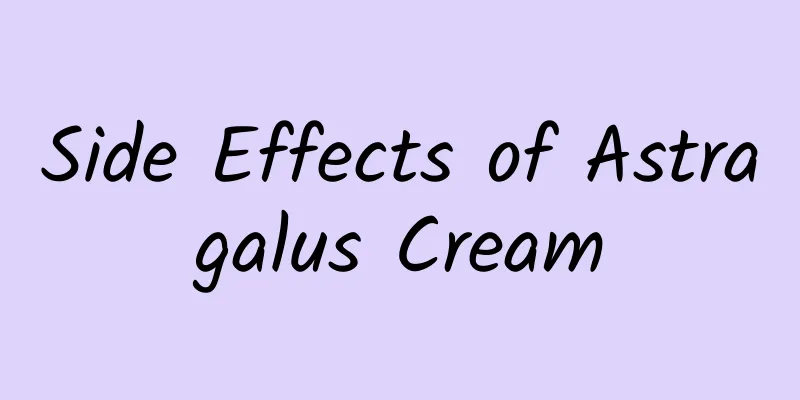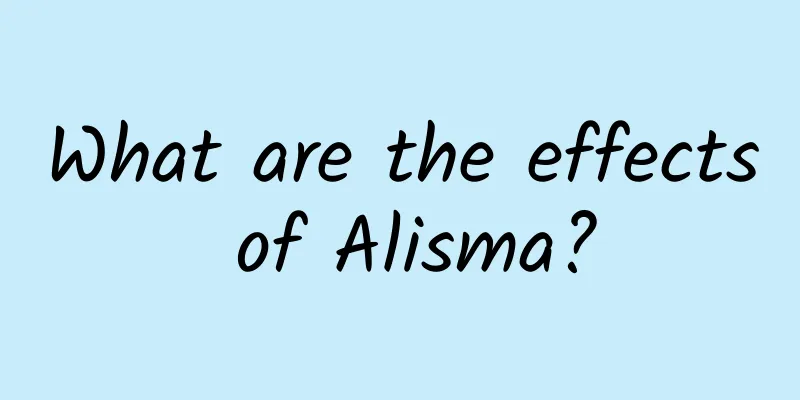What happens if you take too much anesthesia?

|
Generally speaking, there will not be a situation where too much anesthetic is given. Whether it is a major operation or a minor operation, the dosage of anesthetic is relatively precise. Generally, during the operation, the patient will wake up within a certain period of time, and the anesthetic will be quickly excreted from the body with the body's metabolism. It will not affect the brain or intelligence, and the impact on the patient is relatively small. Will using anesthesia for tooth extraction damage brain nerves? "Doctor, please! Can you not use anesthesia during the operation on my child? Can we hold him down to prevent him from moving?" In the Department of Stomatology of Guizhou Medical University, parents often make this request when their children have teeth extracted, because they feel that anesthesia will affect their children's future intellectual development and memory. In fact, the strong resistance to anesthesia is because parents are worried that their children will become stupider, their intelligence and memory will not be as good as before, and even their learning and development will be affected after using anesthetics. Professor Gao Hong, director of the Department of Anesthesiology of the Affiliated Hospital of Guizhou Medical University, said: "Although this feeling is understandable, this worry is unnecessary." Because the drug only works on the nerves temporarily, and the functioning of the nervous system will return to normal after anesthesia. Currently, there is no organization or data in the world that shows that under normal anesthesia operations, intelligence has a direct relationship with anesthesia. Since it is difficult to determine the connection between anesthesia and children's intelligence, does it mean that it is impossible to rule out the impact of anesthesia on children's intelligence? Gao Hong explained that the activity of human brain cells is closely related to the amount of oxygen. Brain cells have a very poor tolerance to hypoxia. Generally, interrupting the brain's oxygen supply for 5 to 8 minutes will cause irreparable damage. During anesthesia or surgery, some patients may experience vomiting, tongue falling back to block the airway, laryngeal spasm and suffocation, which may lead to cerebral hypoxia. In addition, if cardiac arrest, massive bleeding, toxic shock, etc. occur during the operation, cerebral hypoxia may also occur. If rescue is not timely, adverse consequences will occur. Therefore, we cannot simply assume that all adverse effects on brain cells are caused by anesthetics. Experts point out that the most basic concept of pediatric anesthesia is: sleep + analgesia = anesthesia. Sleep is very important for pediatric surgery because it is difficult for children to tolerate the discomfort caused by the fixed position during surgery, so they need to be given sufficient medication to help them sleep. Children may experience confusion and drowsiness during the process of waking up from anesthesia, but this is normal as long as they respond when called. The risk of anesthetics is divided into five levels "Will anesthetics cause drug resistance? Will we become more sensitive to pain after using it once?" Professor Gao said that in addition to affecting consciousness and changing the degree of pain perception, anesthetics will also interfere with the patient's normal physiological functions, such as heartbeat, blood pressure, breathing, etc. Before surgery, doctors must fully consider whether the patient can withstand the negative effects that come with anesthesia, so surgical anesthesia naturally involves a certain degree of risk. The side effects of anesthetics and the risks of anesthesia for different patients are also different. The most commonly used anesthesia risk classification standard is the classification level recommended by the American Society of Anesthesiologists. "Although some side effects exist, there is no symptom of increased sensitivity to pain after use." Professor Gao explained that the more common temporary side effects of anesthesia include nausea and vomiting, drowsiness, temporary inability to urinate, sore throat, headache, etc. Minor complications include muscle pain, teeth, dentures causing injury to the lips and tongue, temporary difficulty breathing, difficulty speaking, and nerve damage. Serious complications such as heart attack, stroke, severe allergic reaction, brain, lung damage, kidney or liver failure, permanent nerve damage, eye injury, larynx damage and pneumonia are rare. He said that the anesthesia risk level divides the risk of surgical patients into five levels. The first level with the mildest anesthesia risk refers to patients without any systemic diseases. "For example, we are normal people with no special medical history and we have an appendectomy." He gave an example, but with other diseases or trauma in the body, the risk level of using anesthetics increases. For example, for patients with hypertension, diabetes, anemia or heart failure, the anesthesia risk level will increase from the second level to the fourth level. Critically ill patients who are in danger of death at any time are at the fifth level with the highest anesthesia risk. |
<<: Does anesthesia have any effect on the body?
>>: What medicine is the fastest way to clear the intestines?
Recommend
What are the anti-tumor pharmacology of traditional Chinese medicine?
For many patients with tumors, it is particularly...
The difference between astigmatism and myopia, the symptoms are different
Many people have vision problems of one kind or a...
What causes palpitations?
Palpitations are what we usually call heart panic...
Foods that help to produce phlegm and dampness have good effects
Chinese medicine has many dietary therapies, and ...
Chronic keratitis
For people, eyes are a medium for viewing the bea...
The eye discharge may be caused by inflammation.
Everyone often sees eye mucus in daily life, but ...
What should I do if I have dizziness due to spondylosis? How should I treat it?
In today's society, there are more and more p...
What are some habits that damage your kidneys?
With the progress of society, the pace of people&...
Artificial humeral head replacement
The humeral head is actually the upper arm of the...
Can I eat white radish if it turns blue in the middle?
White radish can be said to be a very nutritious ...
Can broad beans cure nephritis?
From the perspective of traditional Chinese medic...
How to treat the body after inhaling formaldehyde
If you have just renovated a house, you cannot mo...
Reasons why it is difficult to get pregnant after removing the IUD
In order to avoid pregnancy and also because they...
Can Qilin Pills cure infertility?
Qilin Pills are a Chinese patent medicine. Resear...
How to treat male kidney stones best
Kidney stones are stones that exist in the kidney...









